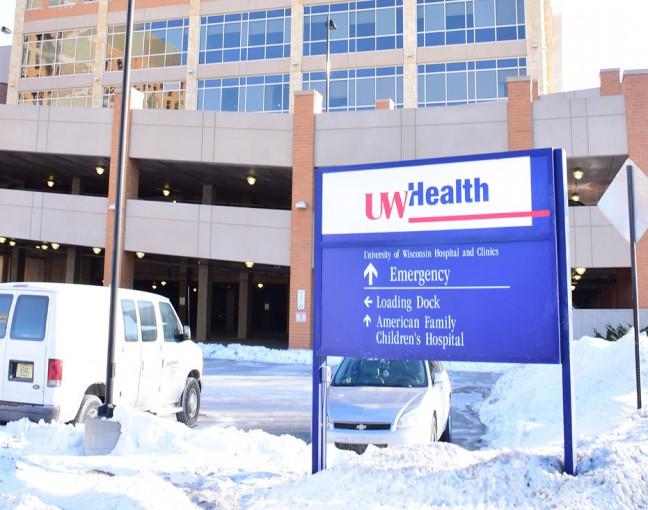A COVID-19 patient received the first transfusion of plasma at the University of Wisconsin hospital. The blood transfusion was donated by a local patient after recovering from the virus.
Studies are being done nationwide to test whether plasma from recovered COVID-19 patients could be given to current patients with the disease to help reduce the illness severity or shorten the duration.
Plasma is the liquid portion of blood which contains pathogen-fighting antibodies produced by the body in response to an infection. Convalescent plasma is the blood of those who have recovered from COVID-19, which contains antibodies to the disease, according to the Mayo Clinic.
Professor of anesthesiology William Hartman is the principal investigator of the study at the UW School of Medicine and Public Health. SMPH is part of a national coalition of more than 40 institutions studying plasma therapy for COVID-19. The national coalition is led by the Mayo Clinic.
Hartman told UW News that using convalescent plasma to treat patients currently with the disease is not a new innovation. It has been around for over 100 years and been used to treat other outbreak diseases including diphtheria, Spanish flu and Ebola.
“While we are hopeful that it will provide similar benefits for patients who are sick with COVID-19, we just don’t know the answer yet,” Hartman said to UW News.
Convalescent plasma therapy was studied during the 2003 SARS-CoV-1 and the 2012 MERS-CoV epidemics, according to UW Health. Based on these studies and limited data published recently by doctors in China, Hartman and others believe convalescent plasma has the potential to reduce the severity or shorten the duration of SARS-CoV-2.
Earlier, the Food and Drug Administration released guidances to facilitate the use of convalescent plasma to severe COVID-19 patients on a compassionate use basis. Compassionate use refers to an unapproved treatment provided outside of clinical trials.
Hartman and his team have worked continuously to begin the clinical trial, which under normal circumstances would have taken many months, according to UW Health.
The research team’s ability to complete approximately 10 months of work in less than a week highlights their dedication and compassion and the institution’s commitment to lead the development of innovative clinical treatments, Chief Clinical Research Officer at SMPH and UW Health Betsy Nugent told UW News.
“Bringing this concept to reality in such a short amount of time required a Herculean effort by a team of extremely talented and dedicated people across this institution and others,” Nugent said to UW News.
SMPH, UW Health, the UW Institute for Clinical and Translational Research and local partners are working together to launch the clinical trial, according to UW Health.
Local partner Exact Sciences is providing the COVID-19 tests required of all potential plasma donors. Local offices of the American Red Cross are extracting, processing and delivering the plasma to UW Hospital. Green Cab and Zerology will provide donors with free transportation for testing and plasma donation.
According to UW Health, more people will become eligible to participate as more people recover from COVID-19 in Wisconsin. To be eligible to participate, UW Health requires potential donors to have received a confirmed diagnosis of COVID-19 originally and be symptom free for at least two weeks.
UW Health will retest potential donors to reaffirm that they are now negative for COVID-19.
UW Health said donors that are deemed eligible will be directly assigned to a specific patient in need. The patients must be referred by their doctor, as the experimental plasma treatment is meant to be a last resort for very ill patients, UW News said.


